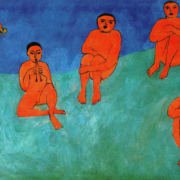Day treatment programs for personality disorders: a review
Abstract
This paper is a modification of a chapter that will appear in the forthcoming volume: “Handbook of Personality Disorders: theory, research, and treatment,” edited by W. John Livesley, PhD, MD, FRCP, published by Guildford Publications: New York, release date April 2001. The original chapter will be entitled “Partial Hospital Programs.” It suggests that more partial hospitalization programs dedicated to the personality-disordered patients should become available and that more rigorous studies need to be conducted in the future, considering the main difficulties with the treatment in the day hospital, the therapeutic program to organize, the relations with the Read more

